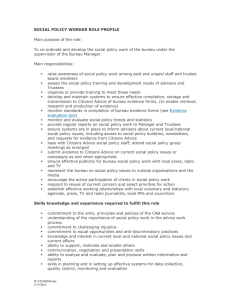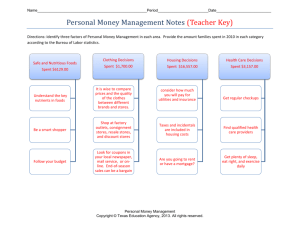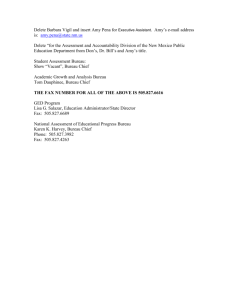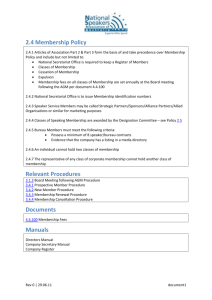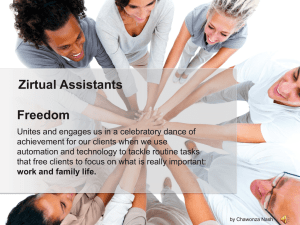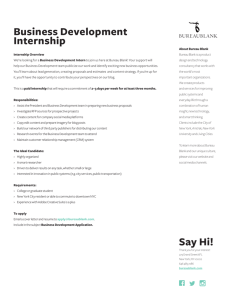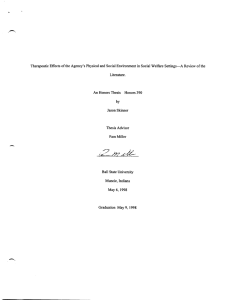WESTMINSTER CAB SERVICE - Westminster Citizens Advice Bureau
advertisement
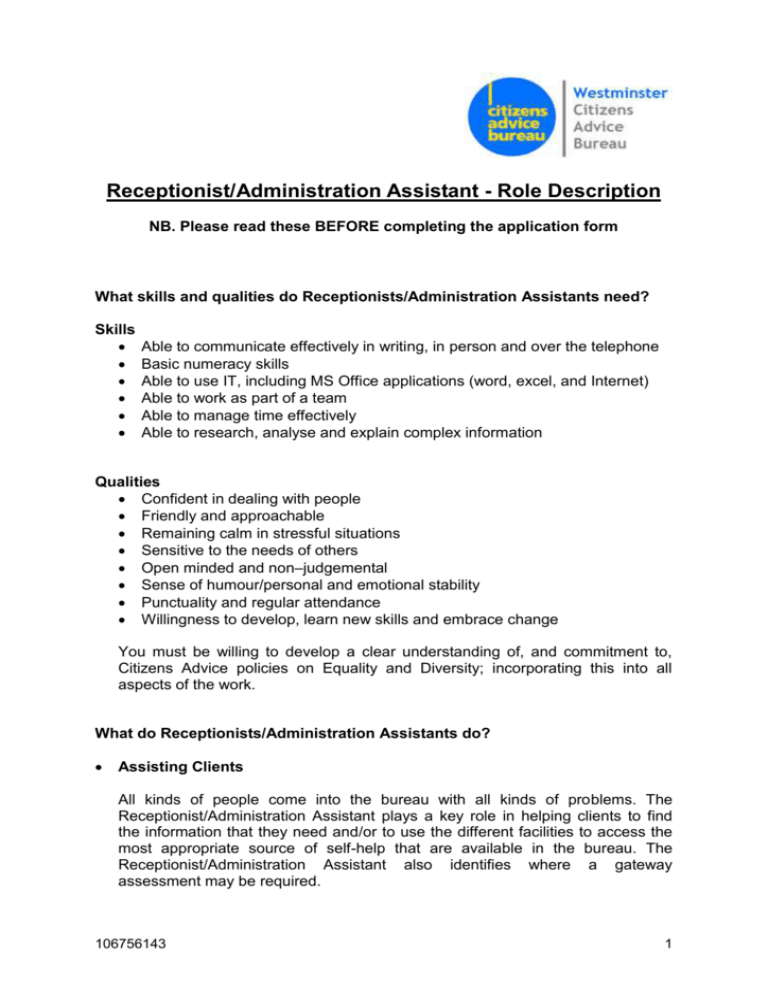
Receptionist/Administration Assistant - Role Description NB. Please read these BEFORE completing the application form What skills and qualities do Receptionists/Administration Assistants need? Skills Able to communicate effectively in writing, in person and over the telephone Basic numeracy skills Able to use IT, including MS Office applications (word, excel, and Internet) Able to work as part of a team Able to manage time effectively Able to research, analyse and explain complex information Qualities Confident in dealing with people Friendly and approachable Remaining calm in stressful situations Sensitive to the needs of others Open minded and non–judgemental Sense of humour/personal and emotional stability Punctuality and regular attendance Willingness to develop, learn new skills and embrace change You must be willing to develop a clear understanding of, and commitment to, Citizens Advice policies on Equality and Diversity; incorporating this into all aspects of the work. What do Receptionists/Administration Assistants do? Assisting Clients All kinds of people come into the bureau with all kinds of problems. The Receptionist/Administration Assistant plays a key role in helping clients to find the information that they need and/or to use the different facilities to access the most appropriate source of self-help that are available in the bureau. The Receptionist/Administration Assistant also identifies where a gateway assessment may be required. 106756143 1 Giving information Receptionists/Administration Assistants have access to a comprehensive information system, factsheets and leaflets to help clients. A supervisor is on hand to help out with difficult problems. Signposting/Referral Receptionists/Administration Assistants signpost clients appropriately (both internally and externally) to suit the client’s needs following agreed protocols, including, informing clients of what they can expect. Case recording It is very important that all clients’ cases are recorded so that the bureau can offer an efficient service if the client comes back or the case gets more complex. Your supervisor will show you how the case recording is done in the bureau. Preventing problems Bureaux collect a lot of information on the different problems that clients have. This information is used to influence government policy or a company practice. This is known as Social Policy work. Administration The nine administrative roles identified in bureaux are: 1. Word processing, photocopying and filing. 2. Receiving and sending telephone calls, faxes, mail and electronic mail. 3. Producing information from spread sheets and databases. 5. Maintaining and developing administrative systems. 6. Stock control of leaflets and materials. 7. Updating information. 8. Helping to arrange events. 9. Taking notes and minutes at meetings. What support and training do I get? All CAB Receptionists/Administration Assistants complete a comprehensive training Programme. This can last for 3 months depending upon the amount of time you can give. The programme includes: 106756143 training packs and observation on the reception/information giving process working on reception and giving information to clients with close support and supervision. 2 What we want from Receptionists/Administration Assistants Impartiality Whatever your views are, you will be expected to see all kinds of clients on any kind of problem they have. You will need to be prepared to examine your own views and feelings to make sure that you are able to give an equally good service to everyone. Equal opportunities All bureau workers are expected to carry out the CAB’s policy of equal opportunities. This means actively opposing all forms of discrimination and ensuring that the service is equally available to all people. Confidentiality Everything that you see and hear in the bureau is private. All members of staff, including volunteers, must sign an agreement to observe a strict rule of confidentiality before they start in the bureau. A commitment to training A willingness to learn and develop is central to being an effective volunteer. Learning to be a Receptionist/Administration Assistant involves a real commitment to training and learning. All volunteers are periodically assessed as to how they are performing via a set of competences specifically adapted for their role. This helps identify training and development needs. Things are always changing and you will need to spend some time reading in order to keep yourself up to date. All kinds of training courses, sessions and self-study material are available for assessors to develop their skills and knowledge. Bureau staff meetings As part of your continuing development it is a priority to attend the monthly bureau staff meetings (3rd Wednesday of the month at 3pm). They provide a forum for training, case discussion, explanation of policy and practice, and mutual support. Time To run an effective service we generally need Receptionists/ Administration Assistants to volunteer in the bureau a minimum of 2 weekdays per week. Do I get expenses? It is CAB policy that bureau volunteers should get out-of-pocket expenses. You should talk to the Volunteer Coordinator about the arrangements. 106756143 3 What happens after I have filled in the application form? Return the form to the Volunteer Coordinator who will explain how the selection procedure works. Note: To ensure the safety of our clients, the Citizens Advice service requires that all volunteers who have direct access to clients, where any part of the work is primarily targeted at legally defined vulnerable adults or children, have their criminal records checked. However, the Citizens Advice service is committed to the promotion and delivery of equal opportunities to volunteers and so has a policy to ensure ex-offenders are not discriminated against. Please keep these notes 106756143 4
